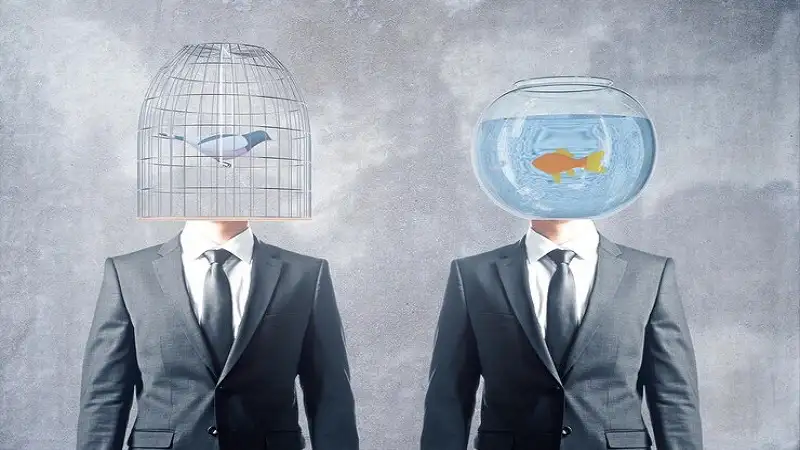In John Gardner’s novel Grendel, readers gain insight into the mind of one of literature’s most iconic monsters. To explore the question, “Which statement best describes Grendel’s perspective?” we must delve into Grendel’s unique view of the world, his existential conflicts, and the isolation that shapes his identity. Gardner’s portrayal of Grendel presents a being torn between a desire for meaning and the harsh realization that he is forever an outsider. This article will discuss Grendel’s perspective, examining how it reveals his complex psychological journey and deep sense of alienation.
1. Introduction to Grendel: The Alienated Observer
When asking “Which statement best describes Grendel’s perspective?” one might say it is that of an alienated observer. Grendel separates himself from humanity through both his monstrous appearance and his inability to communicate or connect meaningfully with others. This isolation profoundly impacts his view of the world, making him resentful, yet fascinated by humans. Grendel watches humans from afar, trying to understand their social structures, relationships, and customs. However, he remains on the fringes, unable to escape the loneliness that defines his existence.
Grendel’s perspective is marked by a mix of curiosity and bitterness. Although he longs for connection, he simultaneously despises humans for their hypocrisy and violence. This outsider status makes Grendel a tragic figure, longing to belong yet forever doomed to remain apart. Therefore, if one were to describe his perspective, it could be seen as a mixture of envy, resentment, and confusion toward the human world.
2. Grendel’s Search for Meaning
“Which statement best describes Grendel’s perspective?” could also be answered by describing his unending search for meaning. Grendel constantly questions the purpose of his existence and what role he plays in the grand scheme of things. This search is a defining feature of his character, as he observes and reflects on human behavior, nature, and his own role in the universe. He admires humans’ ability to create stories and meaning, though he questions the validity of their self-made truths.
Grendel’s perspective on meaning reflects an existential conflict. He is both a philosopher and a skeptic, yearning to find a purpose while doubting that any true purpose exists. His experiences and interactions reinforce his cynicism, leading him to believe that life may ultimately be meaningless. This struggle with purpose versus meaninglessness is central to understanding Grendel’s view of life and the world.
3. Influence of the Dragon: Embracing Nihilism
When asking “Which statement best describes Grendel’s perspective?” one must consider his encounter with the dragon, who fundamentally alters Grendel’s outlook. The dragon, an ancient creature with immense knowledge, introduces Grendel to nihilism, the belief that life is devoid of inherent meaning. Through the dragon’s eyes, Grendel begins to view existence as pointless, a series of repetitive cycles with no real purpose or significance. This revelation is both liberating and confining for Grendel, who adopts a more nihilistic view after meeting the dragon.
This encounter with the dragon reinforces Grendel’s belief that he has no place in the human world and no true role in any larger plan. It is this embrace of nihilism that leads Grendel to accept his role as a “monster” and an antagonist in the human world. Therefore, if one seeks to summarize Grendel’s perspective, it could be as a reluctant acceptance of a purposeless existence, influenced by the dragon’s philosophy.
4. Grendel’s View of Humanity: A Love-Hate Relationship
To further address “Which statement best describes Grendel’s perspective?” it is crucial to explore his relationship with humanity. Grendel holds a complex view of humans; he despises their cruelty and hypocrisy, yet he feels drawn to them, watching with a mixture of fascination and revulsion. Humans are capable of creating beauty and meaning through art and storytelling, but Grendel sees this as a means to mask their inherent flaws and violent tendencies.
Grendel’s interactions with humans lead him to a dark realization: despite their ability to create meaning, humans are not fundamentally different from him. He often finds that they are just as violent and flawed, and their moral values appear contradictory. Therefore, we could describe Grendel’s perspective as one of contempt and envy, as he sees humans both as kindred spirits and as creatures with a potential he will never attain.
5. Grendel’s Fatalistic End: Acceptance of His Role
The question, “Which statement best describes Grendel’s perspective?” comes full circle in his final acceptance of his role in the narrative. Grendel’s perspective at the end of the novel reflects a tragic resignation. He has tried to understand humanity, grappled with his purpose, and explored philosophical depths, only to arrive at a fatalistic conclusion. He believes he is destined to be the monster in humanity’s story, fulfilling the role that fate has assigned him.
In his final confrontation with Beowulf, Grendel experiences a profound sense of futility. He realizes that, despite all his efforts to understand and defy his fate, he is ultimately bound by it. Grendel’s perspective shifts from a search for meaning to a resigned acceptance of his place as an antagonist, marking the tragic end of his philosophical journey.
6. Conclusion: Grendel’s Perspective as a Reflection of Human Struggles
In summary, to best describe Grendel’s perspective, we can portray him as a character shaped by isolation, a longing for purpose, and a gradual surrender to nihilism. Grendel’s journey in Gardner’s Grendel provides a window into universal human struggles—loneliness, existential questioning, and the search for meaning. Although the story portrays him as a monster, Grendel’s perspective ultimately mirrors many aspects of human life.
Through his philosophical explorations, Grendel becomes a tragic figure that audiences can empathize with, despite his monstrous nature. His longing for understanding, his conflict with fate, and his journey toward a bleak acceptance of his role make his perspective both complex and profoundly relatable. Thus, Grendel’s perspective reflects existential despair, philosophical curiosity, and tragic resignation, symbolizing humanity’s deepest struggles with meaning and identity. Read More. Famecozy.
